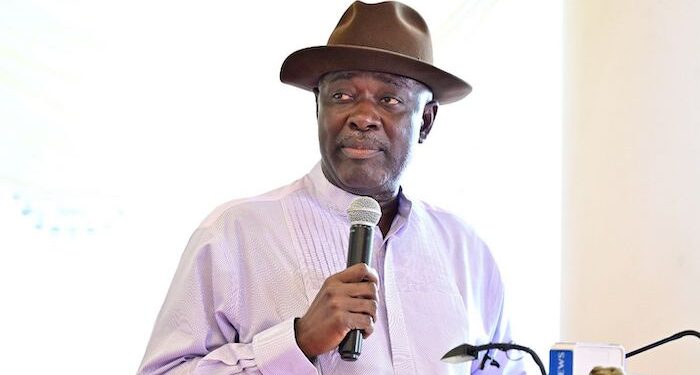Nigeria’s Minister of State for Petroleum Resources, Senator Heineken Lokpobiri, has stated that Nigeria is poised to exceed the crude oil production quota set by the Organization of the Petroleum Exporting Countries (OPEC). During the 36th OPEC and non-OPEC ministerial meeting, the group projected Nigeria’s oil production quota for 2024 to be 1.5 million barrels per day (bpd).
While three consultancy firms had reservations about Nigeria’s capability to meet its pledged production, Lokpobiri, in a Twitter post, expressed confidence that the country currently produces 1.5 million barrels of crude oil per day and expects to surpass the projections in the 2024 budget.
However, it’s important to note that Lokpobiri’s figure includes both crude oil and condensates, with condensates typically excluded from OPEC’s computations for member quotas. Nigeria’s production in October was reported to be 1.35 million bpd. The 1.5 million bpd quota for 2024 appears to differ from President Bola Tinubu’s forecast in the proposed 2024 budget, where Nigeria adopted a daily oil production estimate of 1.78 million bpd.
Lokpobiri emphasized that Nigeria is on track to maintain and surpass the production quota despite a general production cut agreed upon by all OPEC member nations in June. The minister highlighted ongoing efforts to resolve bottlenecks that could hinder production objectives.
Additionally, on the sidelines of the ongoing United Nations Climate Change Conference (COP28), Lokpobiri engaged in a meeting with Baker Hughes Chairman, Mr. Lorenzo Simonelli. Baker Hughes expressed interest in sustaining and enhancing its investment in Nigeria’s oil and gas industry. Simonelli conveyed the company’s commitment to contributing to Nigeria’s energy transformation agenda and supporting sustainable energy practices.
Lokpobiri commended Baker Hughes for its longstanding partnership and assured the delegation of the Nigerian government’s commitment to creating an enabling environment for investments in the refinery sector. The meeting laid the groundwork for a promising collaboration between Nigeria and Baker Hughes, contributing to sustainable energy goals globally.


